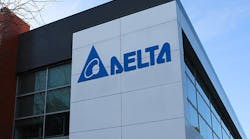Surveillance police cameras across Denver nearly quadrupled for the Democratic National Convention, and now those cameras are taking aim at daily crime.
Denver police used 13 cameras before the DNC in August, but the gathering of high-profile Democrats allowed the department to beef up its arsenal by an additional 50 cameras.
Last week, an officer in police headquarters monitored a camera, or cameras, trained on Civic Center and was able to describe drug-deal suspects to cops on the street who made seven arrests near 14th Avenue and Broadway in about 90 minutes, said Denver police Lt. Ernest Martinez.
"It's not a panacea," Martinez said. "It's a tool to fight crime."
Martinez briefed members of the Denver City Council Safety Committee on Wednesday, telling them about High Activity Location Observation (HALO) cameras and the department's plans for them.
Last week's arrests at Civic Center are a beginning, with more operations to come, Martinez said.
The cameras, which cost about $25,000 each, have a range of about a city block and can zoom in with great clarity, Martinez told the committee.
As part of DNC security, the cameras were purchased with federal funds, with no initial costs to the Police Department or city.
"We'll redeploy cameras ? to high-crime areas," Martinez said, in part based on "calls for service."
Police plan to use civilians to monitor the cameras so they don't tie up officers. Typically one person will watch the cameras, which digitally record information 24 hours a day and store the data for up to 30 days.
Evidence in criminal cases can be sorted out and held indefinitely.
Councilman Paul Lopez urged police to use the cameras as a way to get Denver residents more involved in their communities.
Residents should "be responsible for helping to keep an eye out" on their neighborhoods and "not just rely on the camera" or police to improve troubled spots, Lopez said.
Other committee members, including chairman Doug Linkhart, voiced concerns about possible privacy issues.
"The public has a right to be wary," Linkhart said.
Police will be on guard against violating or impeding First and Fourth Amendment rights while using the cameras, Martinez said. The cameras are, and will be, in public spaces and public rights of way, he stressed. Signs informing people about cameras will be posted.
"It's not an Orwellian type of thing," Martinez said. "It's a crime thing."
Mark Silverstein, legal director of the American Civil Liberties Union of Colorado, said the public suffers when high-tech surveillance cameras are used.
"A program that assigns police to monitor public spaces through video surveillance has the potential to erode privacy, inhibit freedom and chill public expression in public places," Silverstein said. "There is something terribly invasive about police employees watching us with sophisticated cameras."
Tony Martinez, 28, of Aurora sat under a tree Tuesday outside the Denver Public Library on the corner of West 14th Avenue and Broadway.
"It seems like Big Brother is able to get closer and closer watching American citizens," Martinez said of the additional security cameras.
Jesse Sanchez, 44, of Denver said he was hit by a car about two years ago in Las Vegas. Police didn't have a witness to the hit-and-run. A surveillance camera helped police track down the driver, and the driver's auto insurance eventually paid for surgery and medical costs.
"If it's going to help security-wise, I guess it's good," Sanchez said. "It worked for me."
Lynda Cramer, 45, of Aurora, a traffic engineer, is torn on the issue.
"It's good and it's bad," Cramer said. "It's good to have a tool to help with crime. Although I have to say, it bothers me having someone watching all the time."


